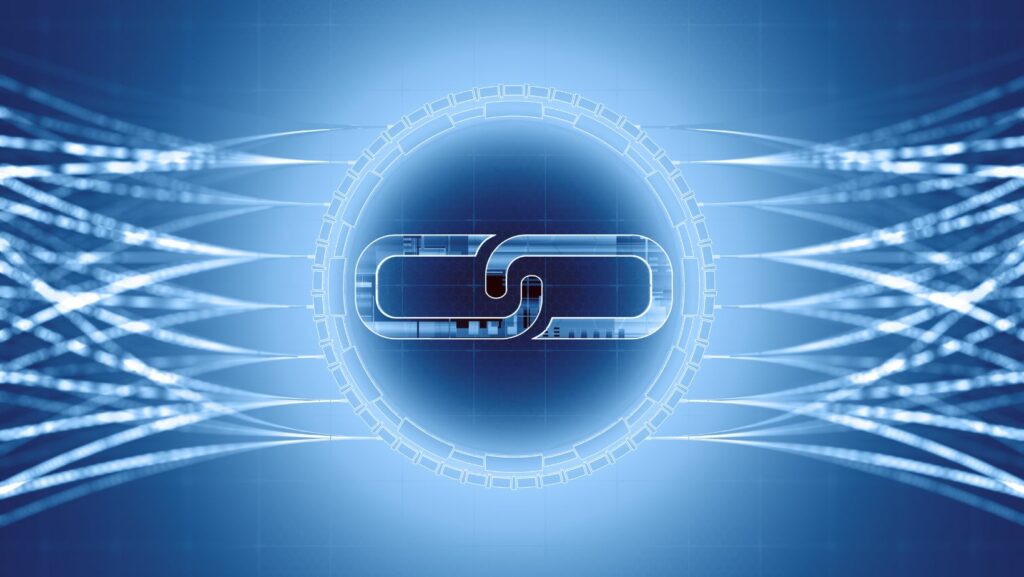Being a digital nomad comes with incredible freedom, but it also brings unique challenges, especially when it comes to navigating employer expectations. One area often overlooked is employer background checks. Whether you’re applying for a remote job or freelance gig, understanding how these checks work can save you from surprises that might derail your plans.
Background checks aren’t just about criminal records—they can include employment history, education verification, and even credit reports. Companies rely on them to ensure they’re hiring trustworthy and qualified professionals. As a digital nomad, your lifestyle might raise questions, so it’s crucial to be prepared. According to SHRM, nearly 95% of employers conduct some form of background screening, making it a step you can’t afford to ignore.
Understanding Employer Background Checks
Employer background checks are a vital step in the hiring process, especially for digital nomads. They ensure that candidates meet the job requirements and have a verified professional profile.
What Are Employer Background Checks?
Employer background checks review personal, professional, and financial information to verify a candidate’s suitability for a role. Common elements include criminal record checks, education verification, and employment history confirmation. For many remote roles, employers may request additional documentation, such as proof of past earnings, sometimes asking for W-2 forms to validate prior job claims. Credit reports and identity verification may also be assessed.
Each check differs based on the employer’s policies and the role’s requirements.
Digital nomads often face stricter scrutiny as remote roles demand high trustworthiness. Preparing documents like tax forms, references, or certifications simplifies the process when applying for a position.
Why Are Background Checks Important?
Employers rely on background checks to make informed hiring decisions. These checks protect company interests by verifying that applicants possess the skills and integrity claimed in their applications. Confirming past employment through requests like W-2 forms ensures that work history matches the candidate’s profile.
For digital nomads, the significance increases as remote roles need reliable employees who can handle tasks independently. Employers may assess trustworthiness and validate credentials more thoroughly compared to in-office roles. Effective background checks reduce hiring risks, enhancing trust between employers and remote workers.
Common Types Of Background Checks
Background checks vary based on the employer’s requirements but often include multiple areas like criminal history, employment records, and education credentials. Understanding these checks helps digital nomads anticipate and prepare for requests during hiring.
Criminal History Checks
Criminal history checks identify any prior criminal offenses or legal issues. Employers access federal, state, and sometimes international databases to verify records. Roles involving financial responsibilities, sensitive data, or high trust demand clear criminal history.

For digital nomads, discrepancies between living locations and declared addresses might increase scrutiny. Some countries handle this through certificates of good conduct, especially for international roles. Ensuring legal documentation across locations supports a smooth evaluation process.
Employment History Verification
Employment history verification confirms past positions, job titles, and tenures. Employers might ask for specific proofs like tax documents or pay stubs. For digital nomads, this could involve a background check asking for W2 forms or equivalent documents.
Accuracy matters because discrepancies lead to concerns about credibility. To avoid delays, maintaining detailed records of contracts, project summaries, and client references helps ensure seamless verification.
Education And Credential Verification
Employers validate degrees, certifications, or other qualifications through education and credential verification. It’s common in industries requiring specialized skills or compliance with licensure.
Digital nomads must provide authenticated diploma copies or certificates. Verifications may involve cross-checking with issuing institutions, which ensures qualifications align with role requirements. Preparedness prevents processing delays, especially when credentials are from international institutions.
Credit Checks
Credit checks evaluate financial responsibility, primarily for roles like accounting or financial management. Financial behavior reviews may reveal unpaid debts, bankruptcies, or credit utilization issues.
For digital nomads, ensuring credit history accuracy is crucial, as residing in multiple jurisdictions sometimes causes inconsistencies. Regularly monitoring credit reports through reporting agencies helps identify and resolve discrepancies efficiently.
Unique Challenges For Digital Nomads
Employers often see digital nomads as non-traditional candidates, which can present unique challenges during background check processes. Navigating jurisdictional differences, varying laws, and logistical hurdles becomes crucial in maintaining professional credibility.
Working Across Different Jurisdictions
Jurisdictional discrepancies can complicate background checks for digital nomads. Employers may face challenges verifying employment history or criminal records across multiple regions. For example, some U.S.-based employers conducting background checks might ask for W-2 forms to confirm past employment, while international employers may require alternative documents. Digital nomads must maintain comprehensive records, including proof of income and contracts, to address jurisdiction-specific requirements. Preparing documentation in advance mitigates delays and ensures compliance with local practices.
Varying Legal Requirements and Privacy Laws
Privacy laws and background check regulations differ globally, posing compliance challenges for both employers and digital nomads. For instance, European Union countries enforce strict data protection laws under GDPR, requiring explicit consent for background checks. Similarly, some countries limit access to certain information, such as financial or credit details. Missteps here may lead to application rejections or incomplete checks. I always review country-specific legal requirements and ensure employers have lawful access to requested data.
Mismatched Time Zones and Communication Delays
Time zone differences often create logistical barriers during the hiring process. Employers conducting checks may encounter delays in obtaining references or verifying credentials due to regional time mismatches. For instance, contacting a previous employer in another country may require coordination outside standard business hours. I proactively inform past employers and references of potential verification requests, streamlining communication despite time zone gaps. Staying responsive and setting clear expectations reduces miscommunication risks.
Preparing For A Background Check As A Digital Nomad
Preparing for a background check helps establish credibility with potential employers. As a digital nomad, staying organized and proactive ensures a smoother verification process.
Gathering And Organizing Your Records
I focus on collecting and updating employment, education, and residency records. Employment documentation may include contracts, tax forms like W-2s, or pay stubs if requested during a background check. For education, I keep verified diplomas or certifications accessible, ensuring they’re authenticated for roles requiring specialized qualifications.
Maintaining clear residency records is also crucial, especially if I’ve lived in multiple jurisdictions. I organize this data in one secure location, including copies of identification, travel documents, and address histories. This streamlines the verification process for employers evaluating details like employment history and criminal checks. Regularly updating my records saves time and eliminates potential discrepancies.
Ensuring Transparency In Your Application
I ensure every detail in my application matches the records I provide. Accuracy in employment dates, education credentials, and listed qualifications demonstrates professionalism. When background checks ask for W-2 forms, I explain my nomadic work structure clearly, as remote roles may complicate traditional employment histories.

By being straightforward, I address challenges in verifying my background across multiple locations. I disclose any independent contracts or freelancing roles upfront, offering alternative documentation if requested. Transparency builds trust with employers and reduces scrutiny during the hiring process.
Addressing Potential Red Flags Proactively
I identify potential issues in my records before submitting my application. Employment gaps, missing documents, or discrepancies in addresses can raise concerns during a background check. For example, if an employer inquires about missing W-2s, I offer proof of freelancing income, such as 1099 forms or bank statements.
I actively provide context for any unclear information, ensuring employers have what they need to proceed confidently. By preparing reference contacts, verifying claim accuracy, and staying responsive, I mitigate challenges and demonstrate reliability for remote work opportunities.
Tips For Building Trust With Potential Employers
Establishing trust with employers is essential, especially for digital nomads navigating unique hiring challenges. Highlighting key strengths, professional references, and consistent communication helps demonstrate credibility and dependability.
Highlighting Remote Work Experience
I showcase my remote work experience by emphasizing roles that required self-discipline, time management, and independent problem-solving. Employers value candidates who can stay productive without direct supervision, so I detail specific projects or responsibilities I successfully completed remotely. If a background check asks for W2 documents to verify employment, I ensure these records are readily available. Including quantifiable achievements, such as meeting project deadlines or increasing client satisfaction, further reinforces my capability in remote roles. Maintaining an updated portfolio with case studies or evidence of remote contributions adds another layer of trust.
Leveraging Professional References
I select professional references who can vouch for my work ethic, skills, and reliability. Ensuring that references are prepared to confirm my qualifications expedites the verification process during background checks. If I’ve worked internationally or across multiple regions, I provide references familiar with jurisdiction-specific norms to address potential concerns. I also notify my references in advance of potential contact to avoid missed connections, which could delay hiring decisions. For additional credibility, I include both previous supervisors and colleagues who can verify different aspects of my performance.
Emphasizing Communication Skills And Reliability
I demonstrate communication and reliability by responding promptly to employer inquiries, meeting deadlines, and providing accurate information. Proactive communication is essential for remote work environments where team coordination often relies on clarity and responsiveness. Examples of maintaining open communication include updating team members during projects, resolving conflicts, and streamlining collaboration across time zones. I highlight any tools or practices I use, like project management platforms, to ensure accountability. By establishing a dependable communication track record, I build confidence in my ability to excel in a remote setting.



